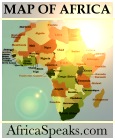The legacy of slavery
Posted: Monday, August 27, 2001(Gwynne Dyer) Human beings, most philosophers would agree, are not a resource. (Human Resources Department, please note.) But since the rise of civilisation most human beings have been treated as an economic resource, and often treated very badly.
Indeed, five or ten per cent of all the people who have lived during the past 5,000 years have probably been slaves.
This makes it hard for today's Africans or African-Americans to claim compensation for the enslavement of their particular ancestors, just as the multitude of misdeeds committed in the name of nationalism over the years makes it implausible for Arabs to insist on singling out Zionism as a form of racism.
But these conflicting claims threaten to sabotage the global conference on racism that opens in Durban, South Africa, on August 31.
Who cares? Not the conference-going classes, certainly.
Washington has said it will boycott the conference unless the organisers drop the nonsense about condemning Zionism and demanding reparations for slavery, but around 10,000 of the usual suspects will go to Durban and enjoy a week of networking by the sea regardless of whether all, or some, or none of the US delegates show up at the World Conference Against Racism, Racial Discrimination, Xenophobia and Related Intolerance. (I know, they left out tooth decay.)
With or without a stripped-down, low-level US delegation, the conference will go through the motions (affecting the real world not one whit), and then they will all go home several good lunches heavier. Yet an opportunity is being lost here. The old "Zionism is racism" accusation has been allowed to steal centre-stage from a much more important debate about slavery.
Zionism is not racism. It's merely 19th-century European nationalism exported to the Middle East. It doesn't treat minorities well, but which old-fashioned European nationalist movement ever did?
The Arab states who forced the "Zionism" references into the conference texts were indulging in pointless point-scoring.
The slavery allegations are important not because 10-15 million black Africans unwillingly crossed the Atlantic as slaves between the 17th and 19th centuries, but because today's Africa is the world's poorest and most troubled region. Those demanding reparations for slavery are effectively saying that that's the reason for Africa's present problems, or a big part of it.
Today's African-Americans also tend to live near the bottom of the local heap in the US, Brazil and the West Indies: all places where the lighter you are, the higher you are likely to be in income and social status. A lot of people blame that on the legacy of slavery too.
The Durban conference would not have settled these issues for us, being an event where the working language is Cant, but if it hadn't been hijacked by the Zionism issue it would have stimulated a very useful debate around race, slavery and history.
The debate about all that is not now going to happen in Durban, but we can have a bit of it here anyway_and you have to start by splitting it in two down the middle of the Atlantic.
There is no evidence that the slave trade did any lasting harm to Africa as a whole between the 17th century and the early 19th century (by which time the British navy had effectively ended it). To remove an average of say, 60,000 people a year from regions of Africa with a total population of over 50 million would have had virtually no long-term demographic or economic impact, especially since the process did not involve European invasion and conquest.
The African kingdoms who raided their neighbours or enslaved their own lower classes for sale to the Europeans would have behaved in much the same way if there were no overseas market for slaves. Smaller tribes and kingdoms occasionally got smashed, but that was always happening anyway.
European colonisation in South Africa was a disaster for the local peoples, but elsewhere along the African coast things were not significantly different in 1800 than they had been in 1600.
By contrast, full-scale colonisation by Europeans after about 1875 had a huge impact on Africa, both negative and positive. Whether the negative aspects outweighed the positive is still deeply controversial: for example, much of Africa is now worse off economically and socially than it was before decolonisation in the 1960s. But that argument is about colonisation (which also happened to most other places); slavery had nothing to do with it.
The true victims of slavery, unsurprisingly, are not the descendants of the people who sold the slaves but the descendants of those who were sold. Though more than half of African-Americans in the United States and smaller proportions in the West Indies and Brazil have now made it into the middle class, a hugely disproportionate number remain outside it.
If it were simply "racism", more recent non-white immigrants to these countries would suffer similar disadvantages, which they obviously don't. Specifically, being the descendant of a slave is a huge social and economic handicap in the Americas. As to how much of this disadvantage is due to majority prejudice, and how much is the internalised residue of past trauma, consider this.
In Britain, where majority attitudes are less prejudiced because there has never been large-scale slavery at home, they track the performance of various ethnic groups in the schools. African-Americans (almost all from the West Indies, in Britain's case), come dead bottom in the rankings. Recent immigrants from black Africa come absolute top, ahead of Chinese, Indians, whites and everybody else. What's the difference?
Maybe it's that these Africans are not descended from slaves.
* Gwynne Dyer is a London-based independent journalist whose articles are published in 45 countries.
This has been posted for comments.Printer friendly version
Send page by E-Mail

Previous Page | Zimbabwe Watch | Historical Views | Home
NOTICE: All articles are the copyright property of the writers. In accordance with Title 17 U.S.C., section 107, some material on this site is provided without permission from the copyright owner, only for purposes of criticism, comment, scholarship and research under the "fair use" provisions of federal copyright laws. Visit: http://www.law.cornell.edu/uscode/17/107.shtml for more details. If you wish to use copyrighted material from this site for purposes of your own that go beyond 'fair use', you must obtain permission from the copyright owner.










